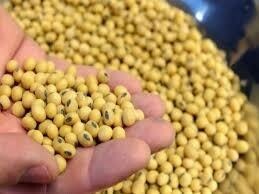Cotton arrival in Pakistan registered a significant decline of 33% as of December 31, 2024, compared to the same period of the previous year, according to data released by the Pakistan Cotton Ginner’s Association (PCGA) on Friday.
As per the report, total cotton arrival in Pakistan clocked in at 5.452 million bales compared to 8.171 million bales recorded on December 31, 2023, a decrease of 2.719 million bales.
On a fortnightly basis, cotton arrivals marginally improved by 2%, as compared to 5.367 million bales recorded on December 15, 2024.
The decline in cotton arrival, an essential raw material for the textile sector, is a concerning development for Pakistan.
The country’s crucial textile sector, responsible for a majority of Pakistan’s exports, has been at the receiving end of a plunge in demand and rising energy prices.
“The decrease in cotton arrivals has been attributed to poor farmer economics and the delayed planting of the cotton crop,” said Arif Habib Limited (AHL), in a note.
The year 2024 marked a significant crisis for Pakistan’s cotton industry, with production and cultivation targets falling substantially short.
Sajid Mahmood, Head of Technology Transfer at the Central Cotton Research Institute, told Business Recorder said that the target for cotton cultivation in 2024 was set at 3.118 million hectares. However, only 1.974 million hectares were cultivated, achieving a mere 63% of the target.
Province-wise breakup
As per PCGA data, cotton arrival saw a significant decline from both Punjab and Sindh.
As of December 31, cotton arrival in Punjab clocked in at 2.659 million bales as compared to 4.079 million bales clocked in during the same period last year, a decrease of 35%. However, on a fortnightly basis, cotton arrivals from Punjab were up by 3%, as compared to 2.594 million bales reported on December 15, 2024.
Similarly, cotton arrival in Sindh also declined by 32% at 2.793 million bales compared to 4.092 million bales registered in SPLY.
However, on a fortnightly basis, cotton arrivals increased by 1% as compared to 2.773 million bales recorded on December 15.

Source: Brecorder




























